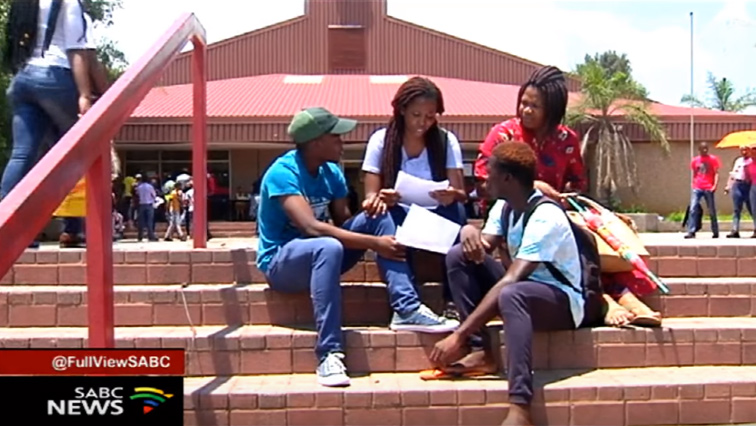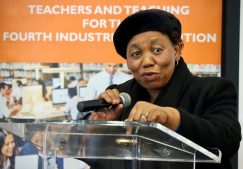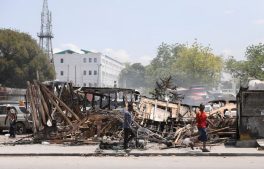Increasing enrollment and reforming the country’s tertiary institutions are key to reducing inequality in South Africa, says the World Bank.
The Bank released a new report on the South African economy in Johannesburg earlier on Tuesday.
The report further shows that post school education and the training system can be improved if government prioritises Technical and Vocational Education and Training and community colleges, distance learning and universities by allowing more private sector participation.
The World Bank believes South Africa’s economic challenges are far from over. It says the country’s economic growth is likely to remain below expectations in 2018, but expects Growth Domestic Product to improve in 2019. It forecasts a growth of 1.3 % for 2019 from a forecast of 0.9 % in 2018.
World Bank Programme leader, Sebastien Dessus, says ongoing external factors like trade tensions will continue to have major impact on emerging markets, including South Africa.
Another challenge the country faces is stabilizing many of its State-Owned Enterprises.
“We expect that South Africa can grow by 0.9% in 2018 and that is slightly below 1% and more importantly below population growth. It is good news because South Africa managed to weather those shocks quite well compared to Argentina and Turkey in particular. We didn’t see inflation and strong reaction on market and this is due to the credibility of the monetary policy in South Africa. There is also a sense that the new administration is really willing to restore links with the private sector.”
The Bank has commended the current government for promising policy announcements which are expected to stimulate the economy.
Dessus says there have also been credible plans, policy commitments and budget discipline. But the Bank warns that these promised changes are not sufficient to grow the economy.
“These announcements are going to the right direction – Visa’s, ICT’s, infrastructure reforms. First of all, they need to be implemented. Secondly, we have been saying that South Africa is a country with very low growth potential coming through various reasons; your history; geography and raising sustainably by a growth of 2% is a heavy lifting thing. So, those policies are good, but certainly not sufficient.”
However, the World Bank says inequality in the country remains a challenge and South Africa is stuck in a vicious cycle of high inequality with a low growth rate. It suggests aggressive reforms in the tertiary education system. The Bank further cautions against the new National Student Financial Aid Scheme saying it will be costly for the fiscus and is unsustainable.
“And the ability of the system to produce graduates that will eventually find a good job in the market. This is not the only thing that a tertiary education system should do, but we see this as one of the main pathways to foster economic inclusion. And the best way to reduce further inequality and poverty is through our tertiary education system and it is to add more resources to TVET and community colleges which have seen a decline.”
The report recommends improving Post School Education and Training (PSET) institutions, especially in previously disadvantaged areas to achieve higher enrollment rates and expand admission capacity. This will also be able to deal with the skills challenges currently facing the country.
South Africa has over the past few years seen an increase in university enrollment compared to PSET institutions.
Click below for more on the story:






